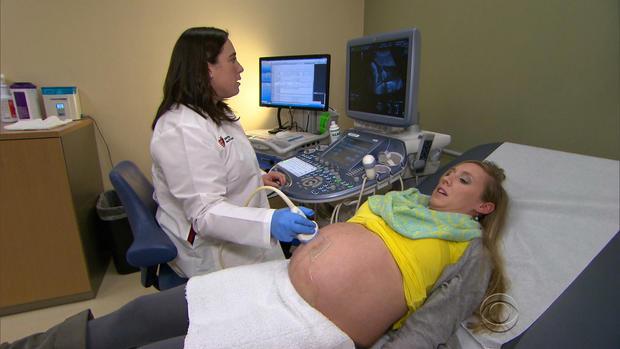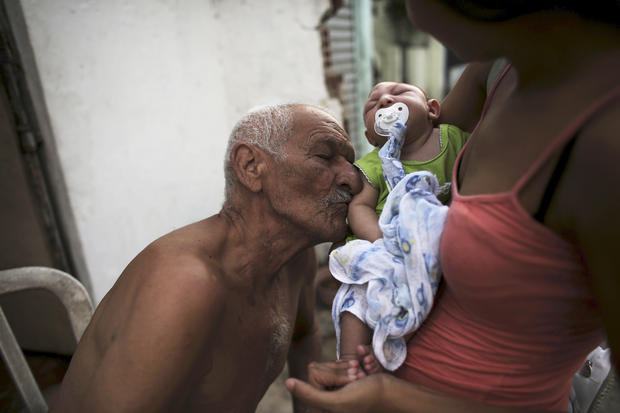Baby born in U.S. with brain damage linked to Zika
ILLINOIS -- The CDC reported on Friday that a woman who caught the Zika virus overseas gave birth in the U.S. to a baby with microcephaly and that a total of nine pregnant travelers to Zika affected areas have tested positive for the virus.
All reported symptoms of the illness, which include fever, rash, joint pain and conjunctivitis.
Samantha Mejia was newly pregnant when she spent Christmas in Honduras with her husband, Omar. Back home in Illinois, she became ill and tested positive for the Zika virus. At two months pregnant, she went in for her first ultrasound.
"They didn't find a heartbeat," she said, adding "That was really hard."
The Zika virus was found in her placenta, though there is no way of knowing whether it caused her miscarriage.
Each year, a half-million pregnant women travel between the U.S. and countries affected by Zika. The CDC is investigating the link between the virus and newborns with microcephaly, a birth defect where a baby's head is smaller than expected.
Babies with the condition often have smaller brains that might not have developed properly, frequently resulting in mental retardation.
Six U.S. women had the Zika infection during their first trimesters. One delivered a baby with microcephaly, two miscarried, two had elective terminations and one woman continued her pregnancy.
Of three women who had Zika after their first trimesters, two had healthy babies and one remains pregnant.
The CDC says there is no evidence that past Zika infections pose a risk for future pregnancies.
The virus, which is transmitted through mosquito bites, has affected between 440,000 and 1.3 million people in Brazil since last May, officials estimate. Researchers say they've found strong evidence that a recent surge in microcephaly in the country -- 3,530 babies have been born with the condition since October, up from fewer than 150 in 2014 -- is linked to Zika virus.
The virus has reached 13 other countries in Latin America and the Caribbean, including Colombia, Venezuela, Honduras, Mexico, and Puerto Rico, prompting the CDC to issue a warning to pregnant women against travel to these locations. Other countries named in the alert are: El Salvador, French Guiana, Guatemala, Haiti, Honduras, Martinique, Panama, Paraguay, and Suriname.
Abortion is illegal in many of the affected countries but Pope Francis has suggested that women threatened with the Zika virus could use artificial contraception, saying there's a clear moral difference between aborting a fetus and preventing a pregnancy.
Pregnant woman who cannot put off travel to the affected countries -- as well as everyone else -- should take precautions to avoid mosquito bites. Women trying to become pregnant or who are thinking about becoming pregnant should consult with their health care provider before traveling to these areas.
Hawaii's Department of Health announced Friday that the baby with microcephaly was born in an Oahu hospital. The mother likely had the mosquito-borne virus while living in Brazil and her newborn acquired the infection in the womb.
Neither the baby nor the mother is infectious. Officials say there's no risk of transmission in Hawaii.

